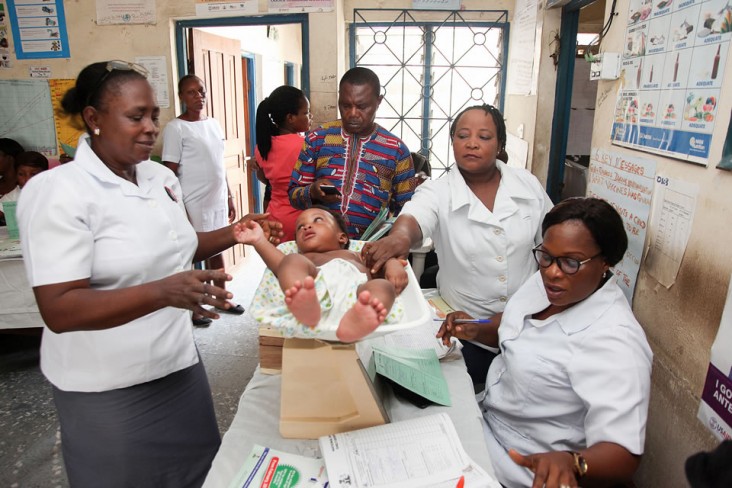- What We Do
- Agriculture and Food Security
- Democracy, Human Rights and Governance
- Economic Growth and Trade
- Education
- Environment and Global Climate Change
- Gender Equality and Women's Empowerment
- Global Health
- Humanitarian Assistance
- Transformation at USAID
- Water and Sanitation
- Working in Crises and Conflict
- U.S. Global Development Lab
Speeches Shim

USAID supports partner countries on their journeys to self-reliance. The strength of a country’s health system can impact its development approach, as well as the performance of all other health investments. That’s why the Agency prioritizes approaches to health systems strengthening that don’t just target one aspect of the health system, but the system in its entirety. We help countries identify where health system improvements can have the most impact to lay a foundation for achieving complete ownership over their health investments and outcomes, independent from foreign donors.
We do this by supporting country-driven processes that identify country-specific needs. We encourage partnerships between the public and private sectors as well as other development sectors, such as education and economic. We prioritize partnerships that seek to ensure affordability, quality and delivery of health care in an equitable and sustainable manner, ultimately protecting people against unforeseen health and financial shocks.
Through our partners, we’ve identified and are scaling up HSS activities that have the greatest impact toward sustainable health outcomes. Examples of our research and studies include:
The Impact of Health Systems Strengthening on Health Report, is a literature review, larger than any to date, that identifies the impacts of HHS activities on health outcomes. Findings include the association of reductions in morbidity and mortality with community-based packages of maternal and newborn health care, conditional cash transfers, integration of services, and health insurance schemes.
The Marshalling the Evidence initiative is one of the first to link health governance to health outcomes. The initiative identified gaps in research for health governance activities and reviewed the body of evidence for participatory health governance.
The 2017 Acting on the Call Report is one of the first measures of how HHS activities, when scaled, can remove bottlenecks in the health system and directly reduce maternal and child health mortality rates.
The Health Systems Strengthening Monitoring, Evaluation and Learning Guide is the first of its kind to help change common perceptions that HSS is “too complex to measure.” The guide provides methods and techniques for monitoring the progress of HHS projects and assessing the linkages between health systems interventions, outcomes and impact.

Comment
Make a general inquiry or suggest an improvement.